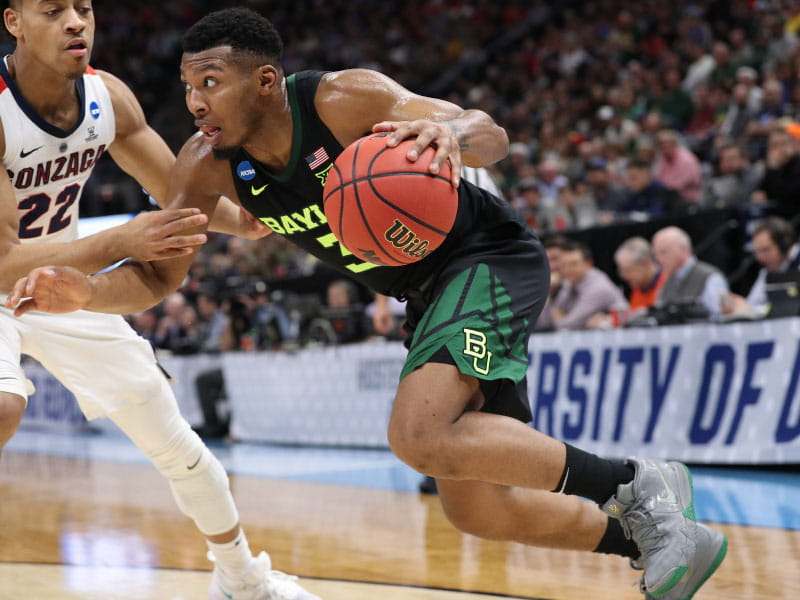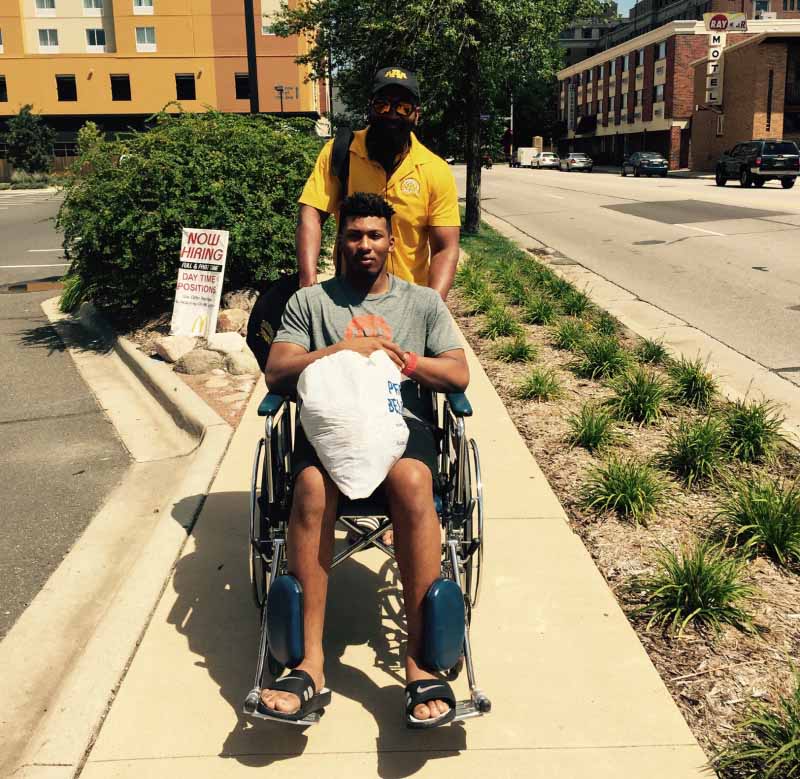
When shooting guard King McClure showed up at Baylor University in 2015, he was one of the top recruits in the country. An NBA career seemed likely.
But before he could even attend his first college game, a doctor told him his basketball career was over – forever.
Routine heart screenings revealed that McClure had hypertrophic cardiomyopathy, or HCM, a condition that causes thickening of the walls of the heart chamber, which can impede blood flow to and from the heart. HCM can increase the risk of cardiac arrest, especially during physical activity, such as basketball. In 1990, college basketball star Hank Gathers collapsed on the court and died due to HCM. In 1993, Boston Celtics star Reggie Lewis died from HCM during an off-season workout.
Looking for more answers — and, hopefully, a different opinion on his playing options — McClure flew from Texas to Seattle to consult a specialist.
“He told me if I continued to play basketball, I would die,” McClure said. “He didn’t allow me to come back to the game – and he said I had to stop doing what I loved completely.”
McClure burst into tears. He started bouncing a basketball when he was just 3 years old and had been playing competitively since he was 5 years old.
“Basketball was my life,” he said.
Her mother refused to take no for an answer. She firmly believed her son would play again. With the help of Baylor men’s basketball coach Scott Drew — and encouraged by the fact that McClure had no symptoms and no family history of heart disease — they sought to understand better.
McClure was also encouraged by Monty Williams, a former Notre Dame and NBA player (and now coach of the Phoenix Suns), who was also diagnosed with HCM before his own college career.
The McClures weren’t just looking for someone to say what they wanted to hear. Since two decades had passed since the deaths of Gathers and Lewis, they were looking for new scientific evidence to show that McClure could continue to play safely.
They found it at the Mayo Clinic in Rochester, Minnesota.
An HCM specialist said McClure could play again, provided he had a device implanted in his chest to protect his heart. This is called an implantable cardioverter defibrillator, or ICD. If the machine detects an abnormal rhythm, it can bring it back into a safe range. Although ICDs are commonly used to treat a variety of heart problems, they are less common among elite athletes.
McClure got the DCI. On the first day of practice in 2016, he ran onto the field alongside his teammates, accompanied by a wave of gratitude.

“Basketball was taken away from me,” he said. “And after that, I wanted to give it my all every time I stepped on the court because I knew how terrible it was to not have basketball in my life.”
He also felt grateful that his condition had been detected before he announced his presence. In the cases of Gathers and Lewis, their diagnosis came by autopsy. McClure credits Baylor’s drug tests with potentially saving his life.
McClure went on to play in 129 games at Baylor, starting nearly half of them. He is still connected to basketball as an analyst at ESPN.
He began sharing his story when he returned for his second season. It has made a difference in the lives of other basketball players diagnosed with heart problems.
Before a game in Iowa, a family showed up at the hotel where the team was staying to meet McClure. Their daughter suffered from a similar illness and when she was diagnosed, they feared for her life and sporting future. McClure’s story gave them hope and helped their daughter play basketball again.
“He shined a light on this condition and brought hope to others,” said Drew, who recruited McClure to Baylor and coached him throughout his college career. “If King had not been able to overcome his diagnosis and play again, others may not have been able to continue playing either.”
Perhaps the best example is Jared Butler.
Butler was diagnosed with HCM during a routine physical exam before his freshman season in college. He consulted the same specialist who worked with McClure and got the same assurance that he could continue playing. He transferred to Baylor, where his freshman year overlapped with McClure’s senior season. Butler went on to have a successful college career and is now in the NBA.
“King opened the door for other athletes with similar conditions,” Drew said.
McClure said he has received “countless messages from people across the country, including basketball players, kids and parents, who feel hope after hearing my story.”
“That’s why I feel like I went through what I went through,” he said. “And that’s why I’m sharing my story and my adversities now – for people who need hope.”
Stories from the heart chronicles the inspiring journeys of heart disease and stroke survivors, caregivers and advocates.
If you have questions or comments about this American Heart Association News article, please email (email protected).

